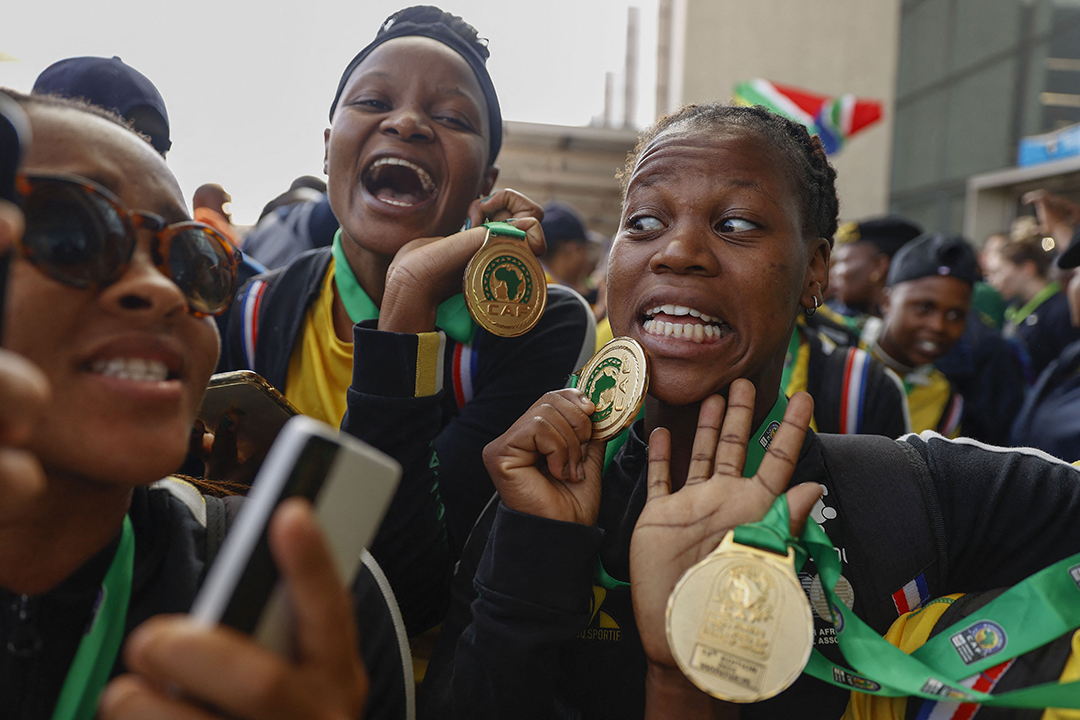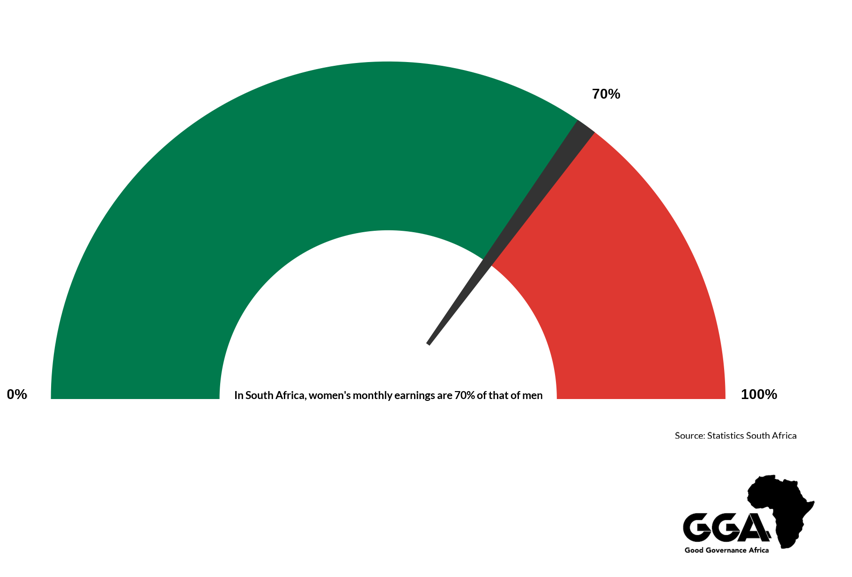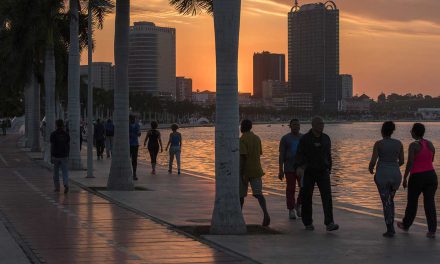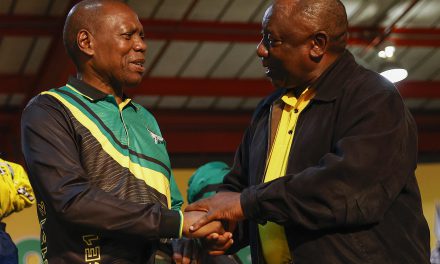In South Africa, August is regarded as Women’s Month, with 9 August celebrated as National Women’s Day. It is a powerful day dedicated to equal rights and the celebration of the resilience and strength of South African women, as well as the contribution they have made to our society and the country.

South African senior national women’s team players show their gold medals as they arrive at OR Tambo International Airport as they celebrate winning the 2022 Women’s Africa Cup of Nations (WAFCON) in Kempton Park on July 26, 2022. The team, nicknamed Banyana Banyana (The Girls), won their first WAFCON on their sixth attempt after beating the host nation Morocco 2-1 at the Prince Moulay Abdellah Stadium in Rabat on 23 July 2022. Photo: Phill Magakoe/AFP
On 9 August 1956, approximately 20 000 women organised and marched to the Union buildings to protest against the Apartheid Pass Law of 1952 that required black South African women over the age is 16 to carry a “dompas” (an internal passport that restricted the right to free movement within the country). The women marched in solidarity with the message that continues to inspire and strengthen South African women today: “Wathint’ abafazi wathint’ imbokodo”, loosely translated to mean, “You strike a woman, you strike a rock”.
The South African government announced that the 2022 theme in celebration of Women’s Day is “Women’s Socio-Economic Rights and Empowerment: Building Back Better for Women’s Improved Resilience”. The concept of gender equality is a global one, and links South Africa to global efforts to achieve gender equality by 2030.
While the role played by women in society has evolved, one thing that remains constant is their key role in socio-economic development. It is therefore vital that women are continuously empowered if our societies are to be improved.
In South Africa, women face various socio-economic challenges ranging from unequal access to economic opportunities, income/remuneration discrimination, pervasive stereotypes about their abilities and skills, and the ever-increasing rate of violence against women. Over the years, the government has responded with interventions and initiatives that aim to identify and address the challenges faced by women. These include (but are not limited to) the Commission for Gender Equality (CGE), an independent statutory body established in terms of Chapter 9 of the Constitution of the Republic of South Africa, 108 of 1996, whose mission is to promote, protect, monitor and evaluate gender equality through research, public education, policy development, legislative initiatives, effective monitoring, and litigation.
South Africa has also developed a range of laws that address specific issues linked to gender equality. These include:
- The Constitution and the Bill of Rights (1996)
- Promotion of Equality and Prevention of Unfair Discrimination Act (PEPUDA), which gives CGE powers to get involved in Equality Court matters
- Employment Equity Act (1998)
- Recognition of Customary Marriage Act (1998)
- Domestic Violence Act
- Criminal Law Amendment Act 2007 (Sexual Offences Act)
- The Children’s Act 2007
On a global scale, it is also important to note that South Africa is a signatory of some of the international conventions relating to Gender Equality and the protection of women, which include:
- The Convention on the Elimination of All Forms of Discrimination against Women (1995)
- Beijing Platform for Action (1995)
- Declaration on the Elimination of Violence against Women (1996)
- Millennium Declaration and Millennium Development Goals – MDGs (2000)
- Protocol to Prevent, Suppress and Punish Trafficking of Persons, Especially Women and Children, supplementing the UN Convention Against Transnational Organized Crime.
South Africa has also ratified the following regional gender equality commitments:
- Protocol to the African Charter on Human and Peoples Rights (2004)
- Solemn Declaration on Gender Equality in Africa (2004)
- SADC Protocol on Gender and Development (2008)
While the South African government has made considerable efforts toward gender equality in the nation, it has faced some implementation challenges, particularly regarding unequal power relations between women and men.
According to Statistics South Africa (StatsSA), women comprise 51% of the total population. Despite women making up just over half of the population, they remain relatively unrepresented in positions of authority and power. The Businesswomen’s Association of South Africa (BWASA), in their women in leadership census 2021, found that only 27.7% of directors and 29.4% of executive managers were women in all participating entities. At top leadership levels of organisations, women accounted for only 17.3% of chief executive officers (CEOs) and chairpersons combined.
According to the Gender Series Volume I (2014), women comprised 32% of Supreme Court of Appeal judges, 31% of advocates, 30% of ambassadors, and 24% of heads of state-owned enterprises. In 2017, among the Top 40 JSE listed companies, only one company had a female CEO, and currently the number of female CEOs in the Top 40 JSE companies has increased to four.
South Africa has various laws aimed at preventing gender discrimination in the workplace. Yet the country has a stagnant median gender pay gap of approximately 30%, ranging between 23% and 35%.

Recently, South Africa celebrated Banyana Banyana’s victory, which was described as a test of South Africa’s gender parity. The all-women team made the country proud and was well received and celebrated across the nation. However, unequal remuneration prevails even for the victorious Banyana Banyana. The South African Football Association (SAFA) is to pay the players R400,000 each in bonuses for winning the cup, while the national men’s team, Bafana Bafana, received R520,000 in 2019 for reaching, and not winning, the quarterfinals in the Africa Cup of Nations.
Strengthening women (socially and economically) is not only a means by which to spur economic growth, but also a means to advance human rights and achieve gender equality. A recommendation to the government is to invest more in women, and work to eliminate inequalities by ensuring that the existing legal frameworks and legislature are effectively implemented in organisations, society, and the country at large.
Women’s socio-economic empowerment can be measured by their capacity to bring about social and economic change for themselves, and ultimately improve equality between women and men. Women’s opportunities are often unduly limited and violence against women is at completely unacceptable levels. The government is encouraged to implement more punitive measures against perpetrators, and ensure that courts are prioritsing these cases.
Freeing women to pursue opportunities remains a critical goal. It is therefore vital that the government also investigate the implementation of gender equality processes, to enable a fair outcome for women in the workplace and in society in general.
Chrissy Dube is the Chairperson of the GGA Management Committee and also a member of the GGA Executive Committee. She is Head of Governance Insights and Analytics at Good Governance Africa. She completed her Master of Commerce Degree at the University of KwaZulu-Natal in 2013. She also has qualifications in Advanced Project Management, Data Analysis, Ethics, and Compliance. With her experience in interrogating data, Chrissy specialises in analysing and interpreting data for informed decision-making in both the private and public sectors. Chrissy is a registered member of the Institute of Risk Management South Africa. Her interests include monitoring economic and social developments.












